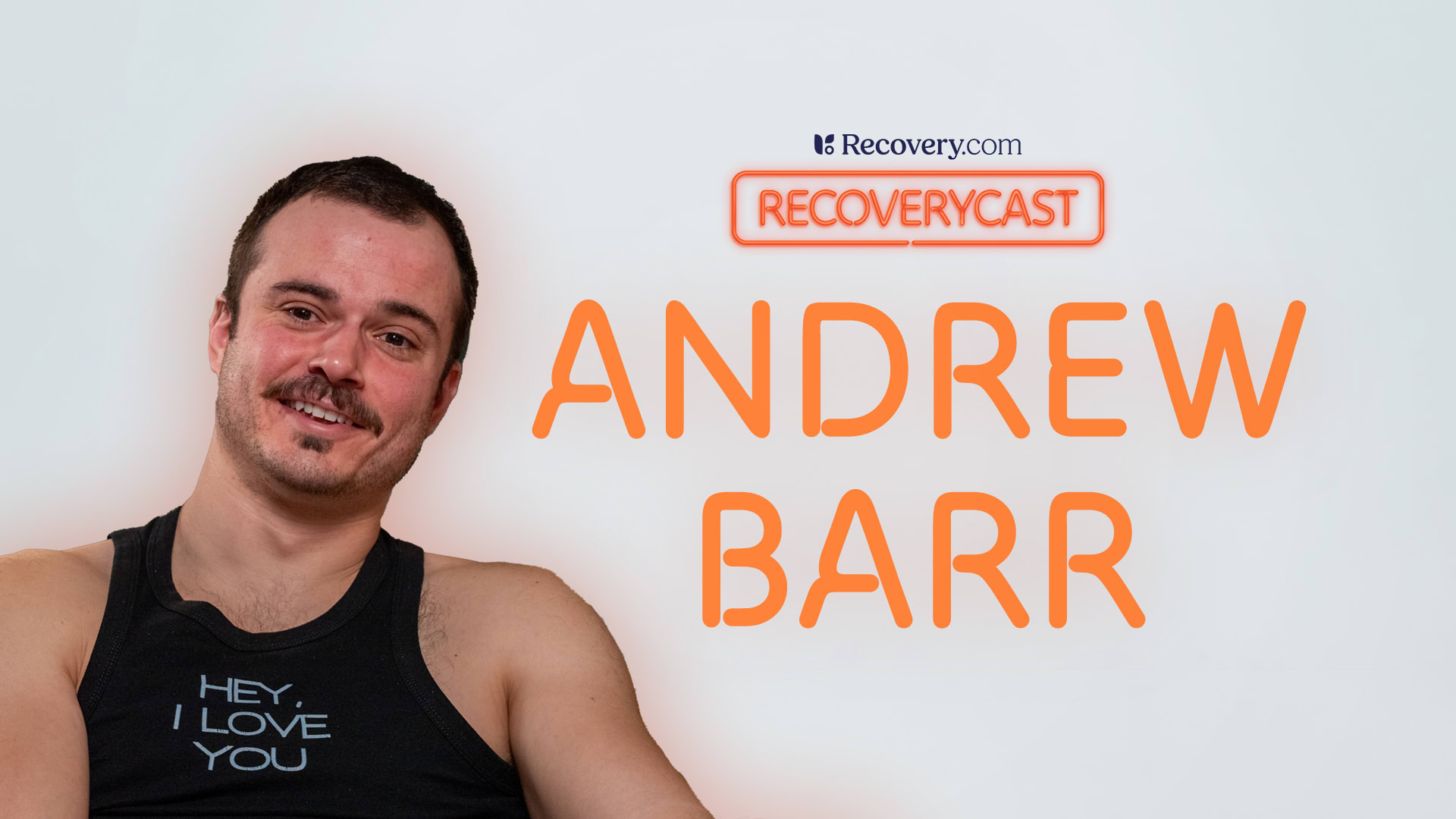Finding Your Punchline: Comedian Andrew Barr’s 10 Insights on Addiction and Recovery





Table of Contents
- 1. The gradual descent: Understanding the progression of addiction
- 2. Numbing the pain: Addiction as a maladaptive coping mechanism
- 3. The influence of environment and normative behavior
- 4. Hitting rock bottom: The turning point
- 5. The fork in the road: Choosing treatment
- 6. Navigating the world of rehab: Finding the right fit
- 7. The science of sobriety: Rewiring the brain
- 8. Embracing feelings: Beyond humor as a coping mechanism
- 9. Facing fear and vulnerability in sobriety
- 10. Returning to the stage: Performing sober
In the world of comedy, timing is everything. But what happens when life throws you a curveball that�’s no laughing matter? On a recent episode of Recovery Cast, hosts Brittani Baynard and Tom Farley sat down with the incredibly funny Andrew Barr, a Canadian stand-up comedian, to explore his journey through addiction and into recovery.
His story, filled with sharp wit and raw honesty, offers profound insights into the insidious nature of substance use, the pivotal moments that lead to change, and the challenging yet rewarding path to sobriety. Get ready for an unexpected and deeply human conversation that goes beyond the punchlines.
1. The Gradual Descent: Understanding the Progression of Addiction
Andrew’s experience mirrors the reality for many struggling with substance use: it rarely begins with a dramatic plunge. For him, heavy drinking started around the same time he began his comedy career at 18, a seemingly natural accompaniment to the bar scene. However, this casual drinking gradually escalated, eventually leading to the use of MDMA, psychedelics, and, by his early twenties, cocaine. This slow and steady increase is a hallmark of addiction, making it difficult for individuals to recognize the danger until it’s deeply entrenched.
Yeah, I think it’s just the nature of the disease…They call it a progressive disease. It gets worse over time and it changes you ever so slowly, which I think is kind of its insidious nature. Like the change happens so slowly that you feel the same day to day, but you are just changing a little bit and a little bit and a little bit and it doesn’t seem like much.
This gradual shift can be attributed to several factors. The body develops tolerance, requiring more of the substance to achieve the same effect. Psychologically, reliance on substances as a coping mechanism strengthens over time. Furthermore, as Andrew points out, the environment can play a significant role, especially in professions where substance use is normalized or even encouraged.
2. Numbing the Pain: Addiction as a Maladaptive Coping Mechanism
For Andrew, like many others, substances became a way to manage or, as he aptly put it, “murder” emotions. The comedy world, while offering an outlet for expression, can also be high-pressure and emotionally taxing. Alcohol and drugs provided a temporary escape from underlying feelings, creating a dangerous cycle of avoidance.
And yeah, I think they’re good at managing emotions or just straight up murdering them. Yes. Just numbing them out completely so that you don’t have to deal with them at all.
While substances offer immediate relief, they ultimately hinder the development of healthy coping skills. Instead of addressing the root causes of emotional distress, individuals become increasingly reliant on external substances, leading to a deterioration of mental health and overall well-being. Learning healthy coping mechanisms for stress, anxiety, and other difficult emotions is a crucial aspect of long-term recovery.
Explore Cocaine Treatment Centers
3. The Influence of Environment and Normative Behavior
The environment in which an individual operates can significantly impact their substance use. For Andrew, the comedy scene, often centered around bars and late-night shows, created a culture where drinking was the norm. This made it easier to rationalize his own increasing consumption, as his behavior seemed to align with those around him.
Yeah, it also combined with if that’s what everyone’s doing, if that’s the normative behavior, you know, the fact that you might be the worst, yeah, doesn’t resonate with you because, but this is what everyone’s doing on this spectrum of people, but everyone’s doing like you’re going too far. You’re like, I’m doing what you’re doing.
This phenomenon highlights the power of social norms and peer influence on substance use. When problematic behavior is normalized within a group, it can be challenging for individuals to recognize the need for change.
4. Hitting Rock Bottom: The Turning Point
For Andrew, the turning point wasn’t a singular dramatic event but rather a series of interventions by concerned friends. These interventions, both “soft” and “hard,” served as a wake-up call, forcing him to confront the reality of his escalating substance use and its impact on his life and career.
I was intervened upon, I got sat down twice and I saw neither of them coming, which to this day annoys me.
These interventions, while uncomfortable and stressful for everyone involved, ultimately provided the necessary catalyst for Andrew to consider seeking help. Recognizing the concern and pain of loved ones can be a powerful motivator for change in individuals struggling with addiction.
5. The Fork in the Road: Choosing Treatment
Faced with the stark reality presented by his friends, Andrew agreed to consider rehab. However, the initial shock of the cost – a staggering $25,000 – triggered an immediate resistance. This reaction highlights a significant barrier to treatment for many individuals: the financial burden.
I was like, okay, you know, I guess like I can go to rehab. Immediately my brain is like, okay, we’re not doing that. I’ll figure out a cheaper way. I’m just like, where do you think $25,000 is coming from? And then they’re like, well, we talked to your parents, and I was like, you talked to my parents!?
The involvement of his parents and their willingness to help ultimately paved the way for Andrew to access treatment. This underscores the crucial role that family support can play in the recovery process. Exploring different treatment options and understanding the associated costs is an important step for individuals seeking help.
6. Navigating the World of Rehab: Finding the Right Fit
Andrew’s experience of researching rehab facilities highlights the diverse range of options available, from luxurious centers with amenities like equine therapy to more basic, bare-bones programs.
Ultimately, Andrew and his family opted for a more affordable program, which, despite its lack of extravagant amenities, provided the essential support and guidance he needed. His positive experience emphasizes that the quality of staff and the individual’s commitment to recovery are often more critical than the fanciness of the facility.
7. The Science of Sobriety: Rewiring the Brain
During his time in rehab, Andrew gained valuable insights into the neurological impact of his substance use. He learned about the potential formation of “neuro links” between alcohol and cocaine, where the consumption of one triggers cravings for the other. This understanding provided a scientific basis for the need to abstain from alcohol, at least in the initial stages of recovery.
One thing they explained to me in rehab… basically I think when you use alcohol and cocaine together frequently over a long period of time, it forms like a neural link in your brain. Or anytime you have alcohol, you will also crave cocaine.
Furthermore, the concept of drugs and alcohol as “mind-altering substances” took on a deeper meaning. Andrew realized that prolonged and consistent substance use literally changes the brain, leading to a disconnect from one’s authentic self. This realization was a powerful motivator for him to embrace sobriety and reclaim his true identity.
8. Embracing Feelings: Beyond Humor as a Coping Mechanism
For Andrew, humor had long served as a primary coping mechanism, a way to navigate and often deflect difficult emotions. Sobriety meant confronting feelings he had long suppressed, a process that was initially challenging and unfamiliar.
Learning to identify, understand, and process emotions in a healthy way is a crucial aspect of emotional regulation in recovery. Therapy, support groups, and mindfulness practices can help individuals develop these essential skills.
9. Facing Fear and Vulnerability in Sobriety
One of the significant emotions Andrew had masked with humor and substances was fear. Sobriety stripped away these defenses, forcing him to confront underlying anxieties, including the fear of not fulfilling his potential.
What’s very comfortable about drinking and using drugs is it’s also an excuse for not fulfilling your full potential…Now I have no reason not to be achieving, which is super scary.
This vulnerability, while initially uncomfortable, ultimately opened the door to genuine self-discovery and growth. Facing fears without the crutch of substances allows individuals to build resilience and develop a stronger sense of self-efficacy.
10. Returning to the Stage: Performing Sober
For a comedian whose career was intertwined with the bar scene, the prospect of performing sober was daunting. Andrew had rarely, if ever, taken the stage without at least a couple of drinks. He worried about his ability to be funny without the perceived “booze muse” and the judgment of his peers.
The idea of performing sober was super stressful. I don’t know if I had ever really done it since high school. Like I always had at least one or two beers in me. And the thing is, as I was, especially for a long time, I was reasonably functional as an addict. Like my career was progressing. I was writing good jokes. Things weren’t going badly.
His decision to be open about his sobriety with his colleagues and the supportive response he received created a safety net and reinforced his commitment to recovery. He soon discovered that his comedic talent wasn’t dependent on substances; in fact, he felt even better and funnier sober.
I feel better on stage than I ever have. Some of the funniest writing that I’ve done, if not the funniest writing has happened since then.
Andrew Barr’s story is a testament to the fact that recovery is possible, even amidst the challenges and temptations of a demanding career. His willingness to share his journey with humor and vulnerability offers hope and valuable insights for anyone struggling with addiction or supporting a loved one through the process. Remember, you are not alone, and healing often begins with sharing your story.
Our Promise
How Is Recovery.com Different?
We believe everyone deserves access to accurate, unbiased information about mental health and recovery. That’s why we have a comprehensive set of treatment providers and don't charge for inclusion. Any center that meets our criteria can list for free. We do not and have never accepted fees for referring someone to a particular center. Providers who advertise with us must be verified by our Research Team and we clearly mark their status as advertisers.







